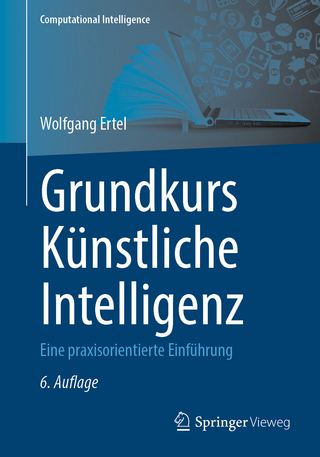
Model-Based Clustering and Classification for Data Science
Cambridge University Press (Verlag)
9781108494205 (ISBN)
Cluster analysis finds groups in data automatically. Most methods have been heuristic and leave open such central questions as: how many clusters are there? Which method should I use? How should I handle outliers? Classification assigns new observations to groups given previously classified observations, and also has open questions about parameter tuning, robustness and uncertainty assessment. This book frames cluster analysis and classification in terms of statistical models, thus yielding principled estimation, testing and prediction methods, and sound answers to the central questions. It builds the basic ideas in an accessible but rigorous way, with extensive data examples and R code; describes modern approaches to high-dimensional data and networks; and explains such recent advances as Bayesian regularization, non-Gaussian model-based clustering, cluster merging, variable selection, semi-supervised and robust classification, clustering of functional data, text and images, and co-clustering. Written for advanced undergraduates in data science, as well as researchers and practitioners, it assumes basic knowledge of multivariate calculus, linear algebra, probability and statistics.
Charles Bouveyron is Full Professor of Statistics at Université Côte d'Azur and the Chair of Excellence in Data Science at Institut National de Recherche en Informatique et en Automatique (INRIA), Rocquencourt. He has published extensively on model-based clustering, particularly for networks and high-dimensional data. Gilles Celeux is Director of Research Emeritus at Institut National de Recherche en Informatique et en Automatique (INRIA), Rocquencourt. He is one of the founding researchers in model-based clustering, having published extensively in the area for thrity-five years. T. Brendan Murphy is Full Professor in the School of Mathematics and Statistics at University College Dublin. His research interests include model-based clustering, classification, network modeling and latent variable modeling. Adrian E. Raftery is the Boeing International Professor of Statistics and Sociology at the University of Washington. He is one of the founding researchers in model-based clustering, having published in the area since 1984.
1. Introduction; 2. Model-based clustering: basic ideas; 3. Dealing with difficulties; 4. Model-based classification; 5. Semi-supervised clustering and classification; 6. Discrete data clustering; 7. Variable selection; 8. High-dimensional data; 9. Non-Gaussian model-based clustering; 10. Network data; 11. Model-based clustering with covariates; 12. Other topics; List of R packages; Bibliography; Index.
| Erscheinungsdatum | 30.08.2019 |
|---|---|
| Reihe/Serie | Cambridge Series in Statistical and Probabilistic Mathematics |
| Zusatzinfo | Worked examples or Exercises; 48 Tables, black and white; 72 Halftones, color; 9 Halftones, black and white; 99 Line drawings, color; 31 Line drawings, black and white |
| Verlagsort | Cambridge |
| Sprache | englisch |
| Maße | 185 x 260 mm |
| Gewicht | 1100 g |
| Themenwelt | Mathematik / Informatik ► Informatik ► Datenbanken |
| Informatik ► Theorie / Studium ► Künstliche Intelligenz / Robotik | |
| Mathematik / Informatik ► Mathematik ► Statistik | |
| ISBN-13 | 9781108494205 / 9781108494205 |
| Zustand | Neuware |
| Informationen gemäß Produktsicherheitsverordnung (GPSR) | |
| Haben Sie eine Frage zum Produkt? |
aus dem Bereich


